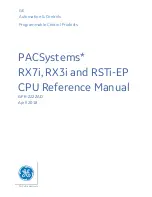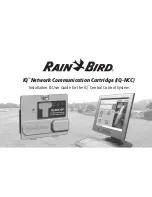
Motus Reference Manual
Page 40 of 146
Version 1.1
29/11/2019
11 INS and AHRS Operation
11.1
Initialisation
There are four different levels of initialisation on Motus. These are orientation,
navigation, heading and time. The initialisation can be monitored by inspecting the
status view in Motus Manager, see section 12.7.2.
After all four levels of initialisation, Motus's filter takes several minutes to achieve it's
full accuracy. It is recommended to wait two minutes after initialisation for applications
requiring high accuracy.
11.1.1
Orientation Initialisation
Orientation initialisation occurs automatically upon power on and typically completes
within several seconds. Once orientation initialisation is complete, the roll, pitch and
angular velocity values will be valid.
When Motus starts up, it assumes that it can be in any orientation. To determine it's
orientation it uses the accelerometers to detect the gravity vector. Whilst this is
occurring, if there are random accelerations present, these can cause an incorrect
orientation to be detected. To prevent this, Motus monitors the accelerometers and
gyroscopes and restarts the orientation detection if there are sudden movements. It is
however still possible under some circumstances for it to miss minor movements and
start with a small orientation error. In this scenario Motus will progressively correct the
orientation error over a period of several seconds.
11.1.2
Navigation Initialisation
Please note that when operating Motus with the IMU or AHRS license, navigation will
not initialise.
Navigation initialisation completes once the system has determined a starting
position. The most common method of navigation initialisation is for the system to get
a 3D GNSS fix from a connected GNSS receiver. If the system is hot starting it will
remember it's position from when it was switched off and use this as the starting
position. The other possibility for navigation initialisation is an external position
Illustration 22: The
four initialisation
levels
















































